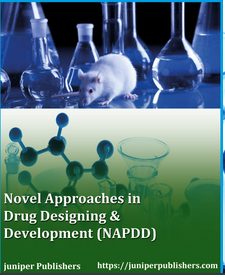Islet Cell Transplantation for Treating Type 1 Diabetes: The Bright Future of Drug Designing and Development|Juniper Publishers|Drug Designing & Development
Authored by Mina T Kelleni
The revolutionary process of islet transplantation for treating type 1 diabetes has been limited by the high level of graft failure. The process of islet isolation alone has been shown to negatively impact islet survival and function in vivo. In addition, insults mediated by the instant blood-mediated inflammatory reaction, hypoxia, ischemia and immune response significantly impact the islet allograft post transplantation [1,2]. Moreover, the immune response to alloantigens and recurrence of autoimmunity contribute to pancreatic islet transplant dysfunction [3]. Several approaches are being developed and tried to overcome this serious problem and novel drug designing is heavily involved with promising results and bright rewards. Some of these approaches are being discussed briefly in this commentary.
https://juniperpublishers.com/napdd/NAPDD.MS.ID.555564.php
For more articles in Drug Designing & Development
please click on: https://juniperpublishers.com/napdd/index.php
The revolutionary process of islet transplantation for treating type 1 diabetes has been limited by the high level of graft failure. The process of islet isolation alone has been shown to negatively impact islet survival and function in vivo. In addition, insults mediated by the instant blood-mediated inflammatory reaction, hypoxia, ischemia and immune response significantly impact the islet allograft post transplantation [1,2]. Moreover, the immune response to alloantigens and recurrence of autoimmunity contribute to pancreatic islet transplant dysfunction [3]. Several approaches are being developed and tried to overcome this serious problem and novel drug designing is heavily involved with promising results and bright rewards. Some of these approaches are being discussed briefly in this commentary.
https://juniperpublishers.com/napdd/NAPDD.MS.ID.555564.php
For more Journals in Juniper Publishers Please click on:
For more articles in Drug Designing & Development
please click on: https://juniperpublishers.com/napdd/index.php



Comments
Post a Comment